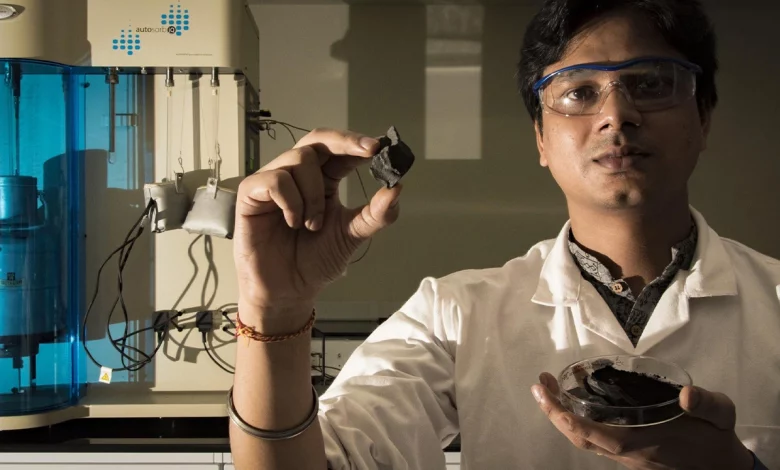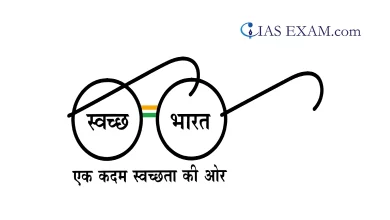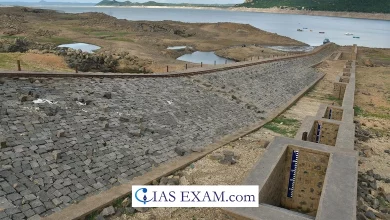UPSC Editorial Analysis
Empowering young scientists will boost research ecosystem
(Syllabus- GS Paper 3, Science and Technology)

Context– The impact of problems caused due to failure of science and technology and its applications is increasing in scale and spreading each time it strikes us. There is a need for scientists who are motivated, committed and competent so that the new applications of science are designed and applied in a flawless manner.
The civilization that thrives or perishes depends on the capability,capacity and ecosystem of its research. The societies that support unhindered and all-round research have always been ahead.Research thrives entirely on emotional and infrastructural support.
The Indian situation
- Scientists in India, despite their groundbreaking findings,hardly get due admiration from the public or from their parent organizations. The governments and registered societies have issued a handful of medals/ awards for them,but the number of scientists who received the accolades are few in number.
- Among scientists the younger lot suffers more and is less resourceful than seniors.The situation is getting worse with time and the increase in retirement age.
- In the backdrop of the world facing huge challenges like climate change, Covid-19, land degradation, frequent and devastating natural calamities like avalanches,landslides,floods and cyclones and scanty resources to feed the ever-increasing population, the role of young scientists has become challenging.
- India needs to mobilize its scientific resources,including young scientists- regardless of their age,gender and scientific field. India needs to accept and encourage the views of young scientists who are more often than not and unlike their senior colleagues, think unconventionally to solve problems. This often results in regular conflicts at the workplace. There is a need for the voice of the young scientists to be heard and supported to produce wonder.
What studies say
- According to VIDWAN, a government of India database containing scientists profiles, there are nearly 10,744 scientists working in agricultural sciences,6752 in biological sciences, 8,149 in chemical sciences, 68,748 in engineering and technology, 18771 in medical sciences ad 16,544 in physical sciences.However India’s position in the global science and technology sector is not encouraging enough though we have improved our rankings in the global innovation index from 81 in 2015 to 40 in 2022 and the number of scientific articles published places India third globally.
- Considering the number of scientists in India,the performance of India is far behind as compared to smaller countries like South Korea, Israel and some European countries.
- India is far behind in getting patents as opposed to China, U.S and South Korea.
- It is estimated that over 55% of scientists in India age below 45 years of age. India has a huge pool of talent that needs to be empowered and engaged to help India take a giant leap in science and technology research.
- The Office of the Principal scientific adviser (PSA) to the government of India has the role to empower the science,technology and Innovation (STI) ecosystem to enable India to achieve full pace in the comity of nations.
- The nurturing and empowerment of the next generation of young scientists and researchers in the early stages of their careers is an entity that shall determine the future direction of scientific leadership in research and development. Efforts are being made to develop policy recommendations for building a research-conducive ecosystem for young scientists through online questionnaires, brainstorming sessions and international seminars and webinars.
- A recent survey conducted by the office of PSA, more than 2000 young scientists wanted a secure research environment that included seed funding to start research,flexibility in using the funds obtained , autonomy to scientists in decision making,more collaborative research opportunities and better career growth.
- In a recently held international webinar some salient recommendations included focus on soft skills,talent recognition and mentorship, project investigator’s grant to young scientists.International collaboration through establishments of MoUs with foreign universities, streamlining international travels of scientists for collaborative research and attending important seminars and recognising the expertise of young scientists at an early stage and funding their research work,etc.
Way forward
- What lacks in the Indian research ecosystem is commensurately rewarding scientists for their good work. Incentivising scientists for their good work is seen to have reaped benefits in different countries.
- The scientist should be made the stakeholders in the projects deciding niche areas of research,evaluating projects,consulting and repairing the commercial benefits of the products post commercialisation.
- Research institutes must share their overhead components with project investigators to enable them in updating their tools, training ,skilling and networking without any restriction.
- Personal or informal meetings shall create greater trust , collaboration and the understanding needed for joint ventures, without which long-term solutions providing research for real-life problems cannot be undertaken.





.png)



